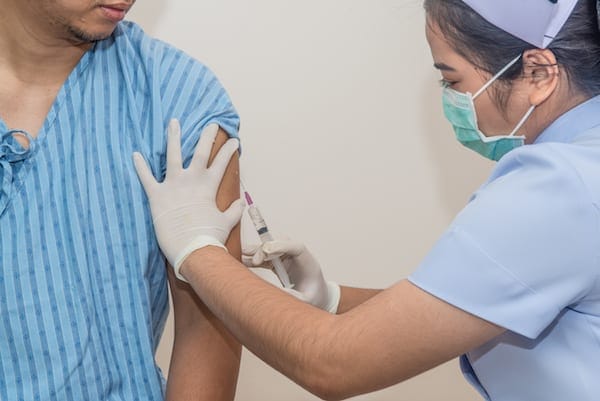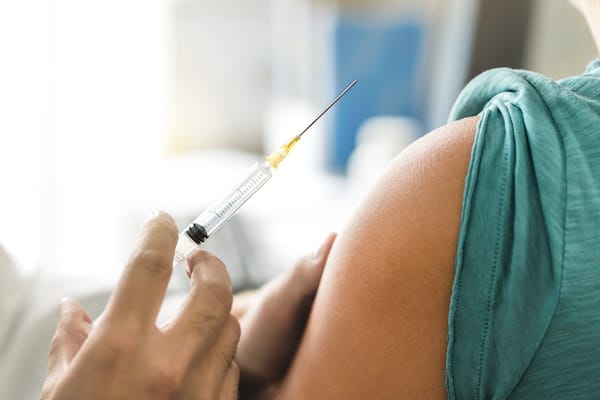
Just like other prescription drugs and medications, vaccinations are also an essential component of family, as well as public health. Primarily, they’re used to build your body’s natural way of immunizing itself to diseases. This means that getting yourself vaccinated can prevent you from getting an infection.
However, you should take note that any vaccine comes with side effects or body reactions. While most of these are minor, some of these can be severe.
If you’re planning to take a vaccine shot anytime soon, below are the potential body reactions you might experience after getting vaccinated:
Soreness Of Arm Or Swelling Around The Injection Site
One of the most common body reactions of a vaccine shot is a sore arm or even swelling around the injection area, which might take a few days to heal. Typically, the pain you feel due to the injection will lead to the soreness of the muscle, which indicates that your immune system is producing some antibodies as a protection against dangerous diseases.
If you usually experience this side effect following a vaccination, the best thing to do is to put a cold cloth for cold compress on the affected area to relieve the pain or swelling. Also, you can take paracetamol, except aspirin, to reduce the discomfort brought about by your body’s reaction to the vaccine.
Fever
Another side effect of vaccination is fever, which might start after the shot is given. When you experience fever, this means that the vaccine is working properly in a way that your body is creating new antibodies that will protect your immune system against any disease.
Therefore, if you get a fever after getting vaccinated, make sure to check your temperature regularly. Aside from taking paracetamol medicines, consume extra fluids, such as water and milk, and do some cold baths or showers to reduce your temperature level.
Fainting
In reality, it’s not the vaccine shot that can make you faint. But, it doesn’t also mean that fainting isn’t one of the common reactions of your body to vaccination. It’s a given fact that many people get nervous or scared about the idea of a syringe being injected into their skin. And, when you’re afraid, you might hyperventilate, and that shallow breathing can lead to fainting.
That’s why when you get a vaccine shot, condition yourself by breathing slowly and thinking of something relaxing. If the symptom persists following the vaccination, try lying down until your feelings of fainting subsides.

Serious Disabilities
Apart from the common mild reactions, vaccinations, specifically those against flu, may come with severe adverse reactions to a person’s body. Although these side effects rarely happen, there are people who, unfortunately, face serious disabilities as their body’s response to the shot.
For example, when a vaccine for Guillain Barre is injected, this might cause some disabling nerve conditions. This means that you might experience tingling in your hands and feet, abnormal reflexes, and even arm twitching after flu shot.
However, symptoms of these serious adverse body reactions usually appear within thirty days following the vaccination, which is why most doctors let go of the idea that a flu vaccine can cause severe side effects, such as disabling nerve conditions and injuries.
So, when this situation happens, talking to an experienced lawyer who handles medically-complicated cases can be a good idea. They can help you know whether the health professional who administers the vaccine can be held liable for the injuries you’ve sustained as a result of the vaccination.
Allergic Reactions
While allergic reactions after a vaccine shot are rare, these might also be serious and life-threatening. These reactions usually occur when the person vaccinated has an allergic sensitivity to one of the common vaccine ingredients, namely gelatin and egg protein. This means that if you’re sensitive to one of these ingredients, you might have a higher risk of getting allergic reactions or anaphylaxis after vaccination.
Moreover, most of these allergic reactions have many symptoms, and these include rashes, shortness of breath, swelling of face, throat, or limbs, nausea, and many more. These side effects typically appear a few minutes after the vaccination. Hence, when you start feeling one or two symptoms of these body reactions, seek medical attention immediately. This is to make sure that you’ll be treated accordingly before the symptoms get worse and become extremely dangerous to your body.
Wrapping Up
Although vaccines are designed to protect and stop the transmission of contagious and deadly diseases, it doesn’t necessarily mean that they have no side effects at all. Depending on the type of vaccine shot injected inside your body, you might experience mild or severe body reactions.
Thus, if you’re scheduled for a vaccination one of these days, keep this information in mind, so you’ll know whether what you’re feeling is a recognized body reaction of a vaccine shot or not. By doing so, you can consult a physician right away if side effects persist for a long time.
The Editorial Team at Healthcare Business Today is made up of skilled healthcare writers and experts, led by our managing editor, Daniel Casciato, who has over 25 years of experience in healthcare writing. Since 1998, we have produced compelling and informative content for numerous publications, establishing ourselves as a trusted resource for health and wellness information. We offer readers access to fresh health, medicine, science, and technology developments and the latest in patient news, emphasizing how these developments affect our lives.







